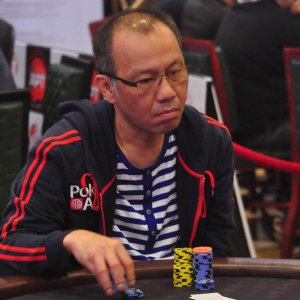Paul and Darren Phua Request Permission to Play Poker While Awaiting Trial

 Awaiting trial on charges of running an illegal gambling business, Malaysian businessman Paul Phua (pictured) and his son, Darren Phua, have petitioned the court for permission to enter casinos and play poker. Attorneys for the Phuas, David Chesnoff and Thomas Goldstein, insisted that the men had abided by the conditions of their pretrial release and asked that the court grant more freedom to their wealthy clients.
Awaiting trial on charges of running an illegal gambling business, Malaysian businessman Paul Phua (pictured) and his son, Darren Phua, have petitioned the court for permission to enter casinos and play poker. Attorneys for the Phuas, David Chesnoff and Thomas Goldstein, insisted that the men had abided by the conditions of their pretrial release and asked that the court grant more freedom to their wealthy clients.
The request was quickly opposed by US Attorney Kimberly Frayn, who wrote that Phua and his son had not proven that the ban wasn’t warranted “in light of the nature of the illegal gambling charges pending against them.”
In July, the Phuas, along with six other men, were arrested in a controversial raid during their stay at several Caesars Palace villas in Las Vegas. The FBI claims that the men were operating a large-scale illegal bookmaking scheme, centered on the World Cup football tournament, using the villas as their command center.
Frayn argued that due to the nature of the Phuas’ alleged crimes, the men had no business entering a casino. “They are charged with crimes connected to unlawful gaming activities, which they conducted clandestinely on casino premises and which were furthered through associations made and maintained through poker gambling salons located within the casino,” she said.
Chesnoff and Goldstein countered that their clients had not been charged with crimes related to playing poker illegally. They also maintained that casinos were “highly regulated environments” secured by a multitude of cameras.
 Before their arrest, the Phuas were already well-known inside the Las Vegas high-stakes poker community. Paul Phua boasts nearly $3 million in live tournament winnings and could often be found playing the biggest games in poker rooms from Las Vegas to Macau. In fact, court documents reveal that the defendants’ combined bail of $2.5 million was paid by none other than Phil Ivey, Andrew Robl, and Tom Dwan. Ivey is pictured.
Before their arrest, the Phuas were already well-known inside the Las Vegas high-stakes poker community. Paul Phua boasts nearly $3 million in live tournament winnings and could often be found playing the biggest games in poker rooms from Las Vegas to Macau. In fact, court documents reveal that the defendants’ combined bail of $2.5 million was paid by none other than Phil Ivey, Andrew Robl, and Tom Dwan. Ivey is pictured.
Of the eight individuals initially arrested, Paul and Darren are the only defendants who chose to take their chances in a trial. Five of the men have already pleaded guilty and were sentenced to five years of probation, during which they must stay out of the United States. Charges were dropped against the remaining defendant.
But even if the FBI brings a strong case against the Phuas, the father and son still have outs. Chesnoff and Goldstein argue that the case should be thrown out entirely, as the operation was based on evidence acquired unconstitutionally.
Indeed, investigators have come under fire for their aggressive tactics in gaining access to the Phua’s villas without a warrant. As part of their ploy, authorities cut internet service to the group’s rooms and sent in undercover officers posing as Caesars tech staff after the men called the front desk for assistance.
 Paul Phua also seems to have the support of a few high-ranking politicians in the government of his native Malaysia. In a strange twist, Home Affairs Minister Ahmad Zahid Hamidi penned a letter to the FBI asserting that the elder Phua was not a member of the notorious 14k Triad organized crime group. He also claimed that Phua regularly assisted the Malaysian government in matters of national security. “We are eager for him to return to Malaysia,” Hamidi wrote.
Paul Phua also seems to have the support of a few high-ranking politicians in the government of his native Malaysia. In a strange twist, Home Affairs Minister Ahmad Zahid Hamidi penned a letter to the FBI asserting that the elder Phua was not a member of the notorious 14k Triad organized crime group. He also claimed that Phua regularly assisted the Malaysian government in matters of national security. “We are eager for him to return to Malaysia,” Hamidi wrote.
The Minister’s comments have sparked a backlash in the country, with opposition party members demanding an explanation for the letter.
The allegation that Phua was a member of the 14k Triad had come directly from the country’s Royal Mounted Police. “The RMP has identified the 14K Triad as a local organized crime syndicate involved in illegal drugs, illegal gambling, and money laundering activities in Malaysia,” a 2008 internal FBI document read. “The RMP has also identified Malaysian Phua Wei Seng as a 14K Triad member.”
Want the latest poker headlines and interviews? Follow PocketFives on Twitterand Like PocketFives on Facebook. You can also subscribe to our RSS feed.




